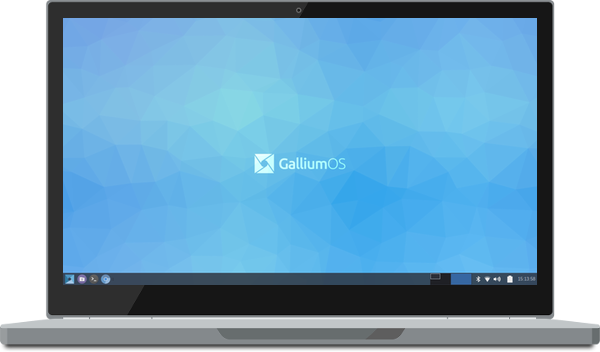GalliumOS: The Linux Distro for Chromebooks and ChromeBox Goes Beta
-
ITWorld reports on the availability of the beta download for GalliumOS, the Linux distro for Chromebooks. GalliumOS is built off of Xubuntu.
-
-
If you're going to go through the effort to make a beautiful screenshot, can you at least try to make it look like it's on an actual computer and not a piece of clip-art? lol
-
Something tells me that that is not a real screenshot, either.
-
@art_of_shred Believe it or not, we don't have the resources to take a professional looking picture of a real Chromebook that will blend with our website.
@Reid-Cooper It is. I don't know what makes you think it's not.
Oh, BTW, I'm on the GalliumOS team.

-
@ColtonDRG said:
Oh, BTW, I'm on the GalliumOS team.

Awesome, welcome to the community! Great to have you here.
-
@ColtonDRG We would love to hear more about the project. Marketing is always a big problem with tech companies so we understand not having the resources to deal with all of that

-
@Minion-Queen said:
@ColtonDRG We would love to hear more about the project. Marketing is always a big problem with tech companies so we understand not having the resources to deal with all of that

Absolutely, we'd love to hear more, see screenshots, etc. Looks like a neat project.
-
Obviously, this is just our first beta. We will definitely have more screenshots, documentation, etc, etc whenever we release version 1.0. The project is targeted at Chromebooks. This is not your average run of the mill Linux distribution. It's an OS that is fully optimized for Chromebooks, so it will work even better than the original ChromeOS. It's not designed to run on regular computers.
-
@ColtonDRG said:
The project is targeted at Chromebooks.
I was meaning to ask about that. Is the target only ARM Chromebooks, AMD64 or both?
-
@scottalanmiller We're targeting all Sandy Bridge, Ivy Bridge, Haswell, and Broadwell Chromebooks. Many users also reported success with Bay Trail, but we don't officially support that just yet. We also hope to support Braswell. Some of the super old Atom Chromebooks and ARM Chromebooks are not supported. To answer your question simply, it's for x86_64 Chromebooks.
Edit: To clarify, an ARM build could happen at some point in the future, but nobody on the team has any ARM Chromebook, plus we're not even sure how we would go about booting it on those devices since there isn't any custom firmware (or built-in SeaBIOS) that we're aware of. We haven't done a ton of research on those models, so it's possible we missed something obvious. To reiterate, it could happen at some point in the future, but not right now.
-
@ColtonDRG said:
@scottalanmiller We're targeting all Sandy Bridge, Ivy Bridge, Haswell, and Broadwell Chromebooks. Many users also reported success with Bay Trail, but we don't officially support that just yet. We also hope to support Braswell. Some of the super old Atom Chromebooks and ARM Chromebooks are not supported. To answer your question simply, it's for x86_64 Chromebooks.
Oh okay, having seen the project and the focus I had assumed that the purpose was almost certainly to provide ARM functionality. I was surprised that it wasn't mentioned, at least not that I could find. I would highlight that because to a lot of people Chromebooks are nearly synonymous with ARM platforms. AMD64 has taken off there too, obviously, but because of the project focus my inclination was that the specific thing that you were trying to tackle was a general purpose Linux desktop for ARM.
-
@scottalanmiller You make a good point. We should point out more clearly that it won't work on ARM hardware. We do have a hardware compatibility chart here: https://galliumos.org/wiki/index.php?title=Hardware_Compatibility The goal was to make something that would work exceptionally well on the x86_64 hardware out there, because it's very nice cheap hardware, but unfortunately most Linux distros don't work too well out of the box, and ChromeOS is great, but a lot of people want a little more than a glorified web browser.
-
@ColtonDRG sure, project makes plenty of sense as is and is definitely the low hanging fruit. Just when Chromebooks, rather than "lower power laptops" was the focus I think the mind jumps to ARM since that is often what makes Chromebooks unique on the hardware side. And when shopping for Chromebooks I personally look for ARM based ones for performance and battery reasons (and I just like ARM.)
-
what makes other Linux's not work well on that hardware other than drivers might not exist?
-
-
@Dashrender said:
@scottalanmiller said:
(and I just like ARM.)
he can't say that enough..

It's true, I'm a huge ARM fan.
-
